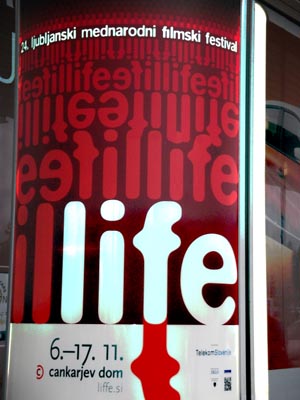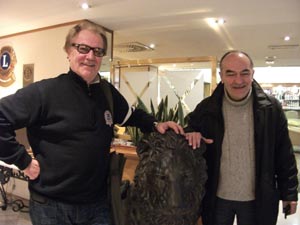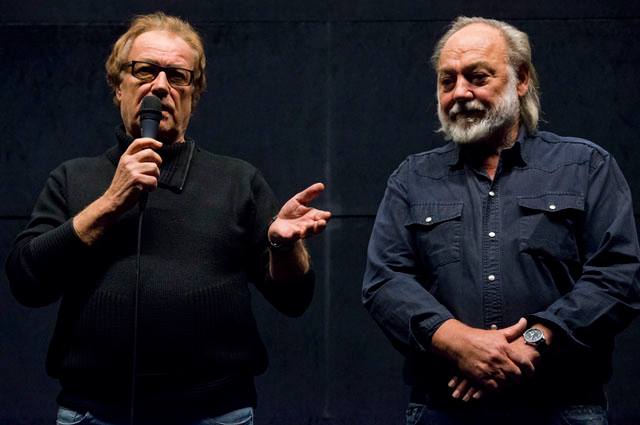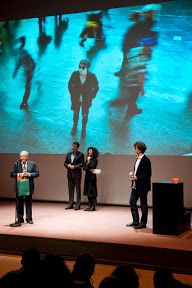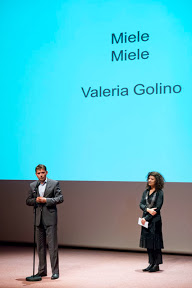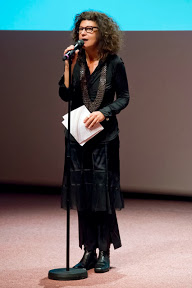|
|
||
|
Pro Tools
FILMFESTIVALS | 24/7 world wide coverageWelcome ! Enjoy the best of both worlds: Film & Festival News, exploring the best of the film festivals community. Launched in 1995, relentlessly connecting films to festivals, documenting and promoting festivals worldwide. Working on an upgrade soon. For collaboration, editorial contributions, or publicity, please send us an email here. User login |
Dr. Ray and the DevilsBefore I write more about Serbian film premier on the International Film Festival FEST 2012 I would like to present you Dinko Tucaković, Serbian film director, film historian, critic, essayist and the principal of Belgrade’s Kinoteka (Yugoslav Film Archive). This time he made rather interesting film with great care and distinctive humor depicting the old communist state of mind in Yugoslavia in 60s. The film’s called, Dr. Ray and the Devils (Doktor Rej i đavoli) film that closed the International Film Festival FEST 2012, 3 days ago and has already made great impact on Belgrade audience.
Two main roles in this film were given to a British actors and theatre directors Paul Murray for the role of Nicholas Ray and Gordon Murray for the role of Orson Welles. So here it is, an exclusive interview (Part I) with Serbian film director Dinko Tucaković, a man who “signed contract with the devil” and became cinematic Macbeth depicting a little part of the great Ray Nicolas’ life, for those with interest for Serbian cinematography, talking about his latest film Dr. Ray and the Devils.
FFM: Why film about Nicholas Ray?
FFM: What is the film Dr. Ray and the Devils actually all about?
FFM: What was the interest of Ratko Dražević, the great communist leaders and director of Avala Film in shooting film by Nicholas Ray? Surely there was some interest, as for the politicians in Yugoslavia, given the rigors left-wing censorship of films and directors who were at that time coming into the country.
Gordon Murray as Orson Welles FFM: What was the movie wanted that Nicolas Ray wanted to shoot in Yugoslavia? Because he wanted to use horror script, written by Dylan Thomas? Thomas is, besides being a fantastic writer, was a strange and mystical man of who were told different things: one of the assumptions of Thomas that he was a man of British Intelligence. Making a horror film was against all political and other trends in communist Yugoslavia. This Dylan’s scenario was realized at the end by Freddie Francis in the British production, and went off not to well, because the film was too limited, one-lined, chamber shooting style. Even though the film being rich in production, Francis was the director who also did a great photography on the film. The film was all nicely packaged. I know that Ray wrote good script, and I can say that the story's cast is not enough. Ray had lot of attractive ideas: his idea was for film to begin with scene where he would be standing with his associates on the cemetery, which is building further film. It is a scene when they would tell what will happen and how the film will roll. They would shoot the scene at the Zagreb cemetery. This is one of the few records that still exist and that was very modern for his time. We thought that our film Dr. Ray would begin with semi-documentary narrative sequence too. I am very sorry that the film was not made: I think that was a good idea. Ray’s last two films were not so successful. Among other things, the last film that Ray shot in Beijing, and later in Spain, were great but not completed. A proof of how he was serious in its intentions to do something here in Belgrade, were well said through two anecdotes. One anecdote was that Ray offered to Dražević to mediate between the Avala Film and Wolcwagen Company and another anecdote was to sell his restaurant in Madrid, one of the most attractive ones in Madrid, and for that money to buy an apartment not far from here. He seriously wanted to situate the continuation of his career in Belgrade. Imagine that Nicholas made movie here how that would be reflecting to Serbian establishment. Unfortunately, it did not happen. I know how important it was for Orson Welles to stay in Croatia for the filmmography left behind. Therefore, you see, we can only regret what we did not have.
FFM: Did Nicholas Ray actually knew Dylan Thomas?
FFM: The political attitude of old Yugoslavia and Tito for Nicholas Ray and his stay in Belgrade? Therefore, Dražević had to smooth things up upon the arrival of Nicholas Ray in Yugoslavia. However, with Nicholas seemed to be easy, because he fled from Hollywood and declared as lefty, and he wanted to engage and cast James Mason and Geraldine Chaplin. Chaplin came to Yugoslavia for the costume testing in Belgrade. Some costumes from the set remained in Avala Film and have been used for some other films afterwards. Stevan Petrovic was assistant to director Nicholas Ray on his film. I did my research in 1980 on these people, including Ratko Dražević. My general impression is that no one made problem here in Serbia about film by Ray. The problem was the rivalry between Zagreb and Belgrade: Jadran Film and Avala Film, two film production companies in Serbia and Croatia, were disputing about the place where to shoot a film. And on the other hand, Ray was going through a dramatic phase in his life, because he was in a great crisis due to his drug addiction, he drank a lot, he was bisexual, which for Belgrade in that period was inconceivable. To that end, Ray was a charismatic figure. He found his way while in Belgrade really good; he drove red Porsche, which is for Belgrade at that time as if UFO landed. He liked to visit the studio of Serbian painter Mica Popovic, they were friends, he was part of the constructed cultural elite of the 60s, and I think that he liked good atmosphere and tension that existed here. 08.03.2012 | Radmila Djurica's blog Cat. : actor American film directors Arts assistant to director Nicholas Ray Author Beijing Belgrade British Intelligence Cinema of the United States Cinema of Yugoslavia critic , essayist Croatia Dinko Tucakovic Director Doktor Rej i đavoli Dusan Makavejev Edinburgh Edinburgh University Emir Employment Relation energy Entertainment Entertainment Family Relation Film film director Freddie Francis Geraldine Chaplin Germany Gordon Murray historian , critic James Mason Kusturica London Lucy Madrid Mica Popovic Nicholas Ray Nicholas Ray Nicolas Ray Orson Welles Orson Welles Oscars painter Paul Murray Person Career Person Location Person Party Person Relation Person Travel politician Porsche premier president Private Producer professor Ratko Dražević Ray Nicholas Ray Nicolas Regina Miller Richard Widmark secretary Serbia Serbian film premier at the International Film Festival - FEST 2012 Social Issues Social Issues Socialist Federal Republic of Yugoslavia Spain Stevan Petrovic studio of Serbian Susan Ray Sweden The Deep the International Film Festival Tim Burton Unfinished films United States White Hotel Wisconsin Wolcwagen Company writer Yugoslavia Zagreb Zagreb cemetery Independent
|
LinksThe Bulletin Board > The Bulletin Board Blog Following News Interview with IFTA Chairman (AFM)
Interview with Cannes Marche du Film Director
Filmfestivals.com dailies live coverage from > Live from India
Useful links for the indies: > Big files transfer
+ SUBSCRIBE to the weekly Newsletter Deals+ Special offers and discounts from filmfestivals.com Selected fun offers
> Bonus Casino
User imagesAbout Radmila DjuricaThe EditorUser contributions |



















